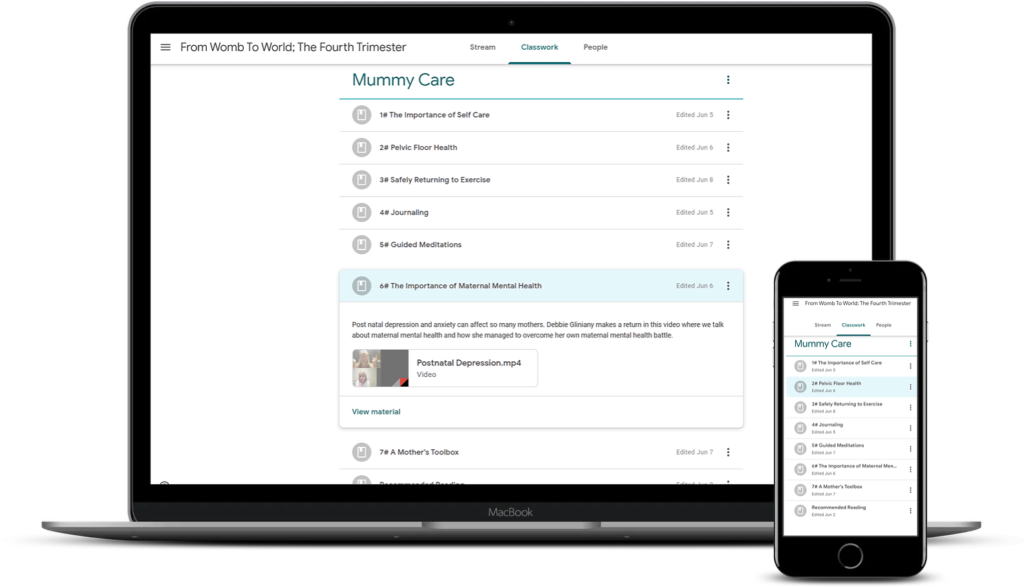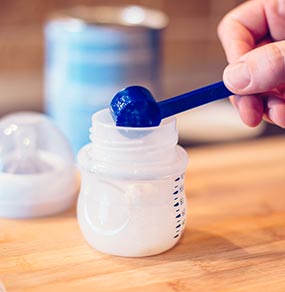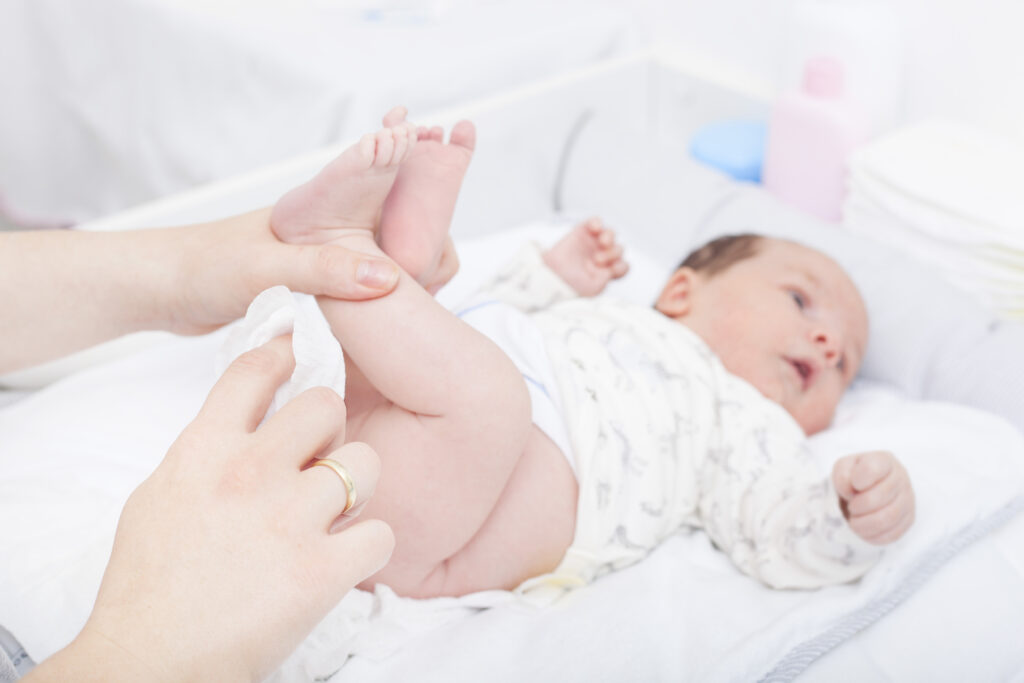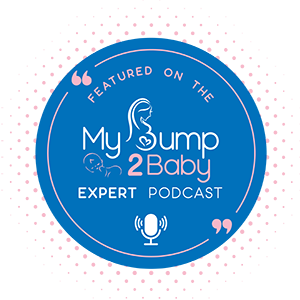It can be so difficult when you newborn baby doesn’t poop easily and some newborn babies struggle with constipation. It often results in grunting, squirming and pain in your little one but what is regarded as natural and when is it classed as constipation?
Grunting Baby Syndrome
Does your baby grunt, squirm, cry and go red faced whilst pooping? This is known as Grunting Baby Syndrome or to give it it’s medical name, Infant Dyschezia. This is a normal part of development. It doesn’t mean that they are in pain, especially when they do pass their stools it’s nice and soft.
We take it for granted when we sit on the toilet and just ‘go’. But actually it takes a lot of coordination between our brain, muscles and pelvic floor. Babies need to learn to poop efficiently and they will get there as their digestive system matures and works efficiently. In the meantime, rest assured it’s perfectly normal for your newborn baby to find it difficult to poop. Offer a comforting touch and a reassuring smile. Try to refrain from anal stimulation as you will be delaying their learning process.
Pooping schedules
What is normal for one baby, is not for another. A baby’s pooping schedule is as individual as your baby herself. You may have noticed that a breastfed baby only empties her bowels once a week which is not uncommon because there is little wastage in breastmilk. A formula fed baby may poop once or twice a day or even three times a day. It is important for you to know your baby’s schedule and act when you notice when it’s not your baby’s norm. If your baby has a firm or bloated tummy, whilst passing infrequent stools, then this could be an indicator of constipation.
Hard stools
The consistency of baby poop is often determined by how they are fed. A breastfed baby usually has mustard coloured loose stools (watch out for those poonamis) and a formula fed baby has harder, darker stools.
When your baby passes clay-like hard stools, then it could be an indicator that your newborn baby is constipated, especially if your baby is straining too. This poop is harder to pass so may result in squirming, fussiness and crying too.
What causes newborn constipation?
A baby is born with an immature digestive system so sometimes their bowels are slow to get moving as it requires brain to body communication to work effectively.
If your baby is formula fed then check that you are not adding too much formula powder to the feed as this can cause constipation. Also if you have recently changed from breastmilk to formula milk then this can also affect your baby’s bowels.
Constipation can be an indicator of a cows milk protein allergy but it is rarely the only symptom. Other symptoms of CMPA include a skin rash, blood in stools and a consistently disgruntled baby.
Thickened milk such as anti-reflux formulas contain a thickener so it harder for your baby to digest.
Reflux medications such as Infant Gaviscon thickens from the inside as it creates a layer in the tummy so again it slows digestion which can result in constipation
How to help a newborn baby poop easier.
Baby massage is a natural way of helping your constipated baby. Massaging your baby’s tummy in a clockwise direction helps move stools through the gut. It can also help to break down the stools, making it easier for your baby to pass. Baby massage also helps your baby mature their digestive system too, aiding better brain to body communication.
Baby yoga movements such as marching the legs and bicycling the legs places pressure on your baby’s tummy, which can help stimulate the bowel.
For more information on baby massage and baby yoga techniques then check out http://www.happysleepybaby.com for more information.
Reflexology is another way of helping newborn constipation. There are certain pressure points on the foot that stimulate and soothe organs and there are specific points on the foot that help the digestive system and stimulate the bowel.
It is often recommended by health professionals to give your baby some cool, boiled water if your baby is formula fed in between feeds to help aid constipation.
Finally a nice warm bath can help your baby as it relaxes the abdominal muscles, making it easier for your baby to pass stools.
If your baby is struggling with colic or you are have a newborn baby in the fourth trimester then see how I can help you and your family here; https://colicsos.com/colic-services/ or book your free 15 minute call.














